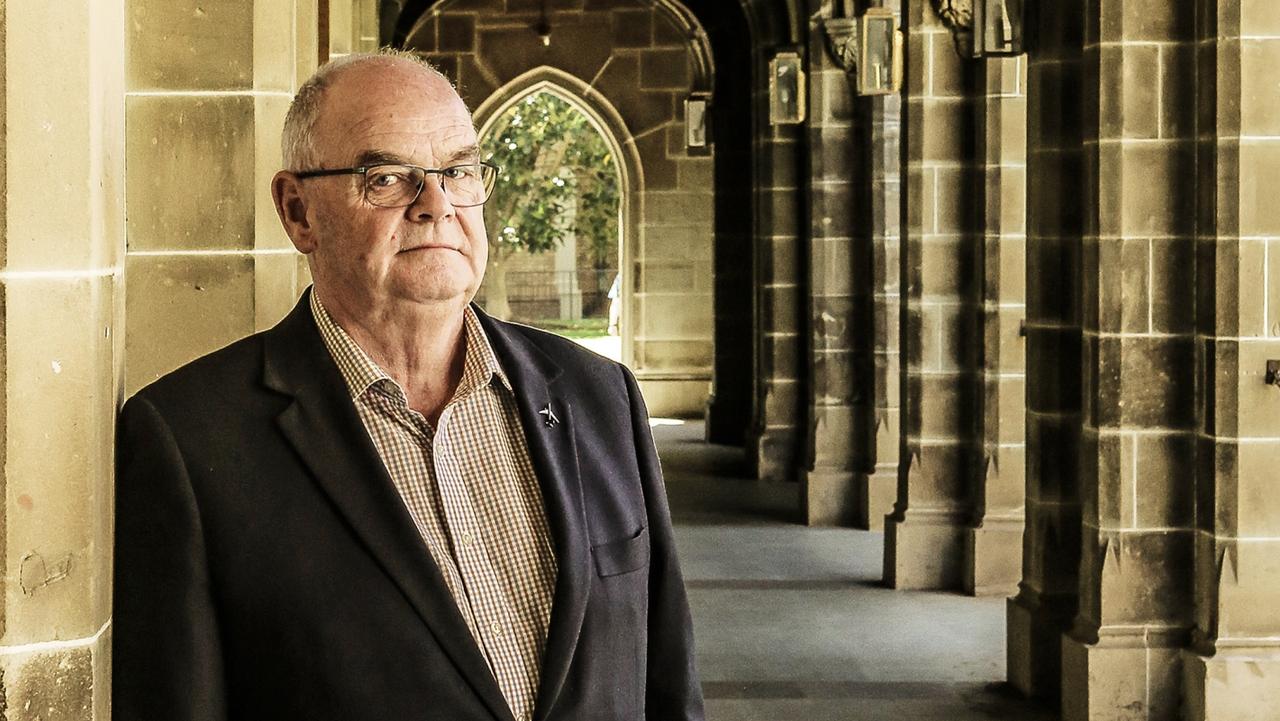States may have to share school-funding cash
STATES poised to implement Labor's Gonski school-funding reforms face having to share their extra money from 2015.
STATES poised to implement Labor's Gonski school-funding reforms face having to share their extra money from 2015, after Tony Abbott and Education Minister Christopher Pyne refused yesterday to guarantee funding levels beyond next year.
Against mounting pressure from an angry chorus of state governments, unions and parent groups, Mr Pyne announced that the Abbott government had found an additional $230 million to fund schools in Queensland, the Northern Territory and Western Australia, which refused to make a deal with Labor on school funding before the election.
He said the government would match the level of funding Labor had previously committed to the states for next year, along with an extra $131m for Queensland, $68m for the Northern Territory and $31m for Western Australia.
"That means every student in Australia is being treated fairly and equitably," Mr Pyne said.
"There aren't second-class students in Queensland, Western Australia and the Northern Territory and first-class students everywhere else.
"We are matching Labor's funding envelope, putting $230m in to the school-funding model for next year."
The Prime Minister vowed yesterday to honour his election pledge on school funding by delivering the same "quantum" of spending as Labor, but stopped short of confirming that the government would spend exactly the same amount on each school.
The extra money for those three states, worth $1.2 billion over four years, was returned to consolidated revenue in the budget by Labor after it failed to make deals, leaving the non-participating states funded at a lower level than NSW, Victoria, South Australia, Tasmania and the ACT, which had signed deals.
While Mr Pyne said "nobody should assume they will get less money over the forward estimates", he refused to say if the deal to provide $1.6bn extra funding to the signatory states beyond 2015 would be upheld.
"How that exactly stacks up, how each part of it works out, is something I will reveal next year when I have had the opportunity to sit down and construct a simpler, flatter, equitable and fair model," he said.
But National Catholic Education Commission executive director Ross Fox said yesterday he expected the government to honour the deal, and dismissed Mr Pyne's assertion it was not valid because the memorandum of understanding had not been signed.
"There's no uncertainty," he said. "Catholic education had an agreement with the previous government. The signature that matters was the Governor-General's on the Australian Education Act."
Unlike with previous funding systems, the Gillard government wrote the new funding formula, including dollar amounts, in to the legislation, making deals between Catholic and independent schools unnecessary.
While the Independent Schools Council of Australia has welcomed Mr Pyne's intention to revise school-funding arrangements, the head of the low-fee Christian Schools Australia, Stephen O'Doherty, said a return to the old funding system would disadvantage his sector's schools.
"Our part of the independent sector - the low-fee, religious-based part - receive less funding per student than Catholic schools do per student. We don't begrudge them that money but we are arguing it should be the same for everyone," he said.
Mr O'Doherty said it was essential that any new funding model maintained the principle of base funding for all students, plus loadings to address identified disadvantage and local autonomy for schools, and he despaired that the issue was being reopened. "
As Labor yesterday escalated its attack on the government over its school-funding backflip, the states were muscling up for a brawl at tomorrow's meeting of education ministers in Sydney.
Labor premiers Jay Weatherill and Lara Giddings said they raised the school-funding uncertainty with Joe Hockey yesterday in a meeting in Canberra but gained no clarity, as the Treasurer referred the matter to Mr Pyne.
"What it demonstrates is that Christopher Pyne is in deep strife and he'll be shifting his position, otherwise he'll be paying a political penalty every day until he does," Mr Weatherill said.
But Western Australian Premier Colin Barnett said the states that had signed deals had to "get real" and realise a new political process was under way.
He said the "secret deals" the previous government had negotiated with separate states had been "nonsensical". "I agree he should go back to square one. Now, hopefully, the commonwealth will maintain and increase its overall funding, and I would expect that to be distributed fairly across every state, and therefore every school, and therefore every boy and girl in Australia," he said.
Queensland Education Minister John-Paul Langbroek welcomed the extra money for next year but was disappointed his state was yet to receive a four-year commitment, while the Northern Territory's Peter Chandler was yet to receive full details of the offer.
ADDITIONAL REPORTING: MARK COULTAN, DAVID CROWE, NICOLAS PERPITCH



